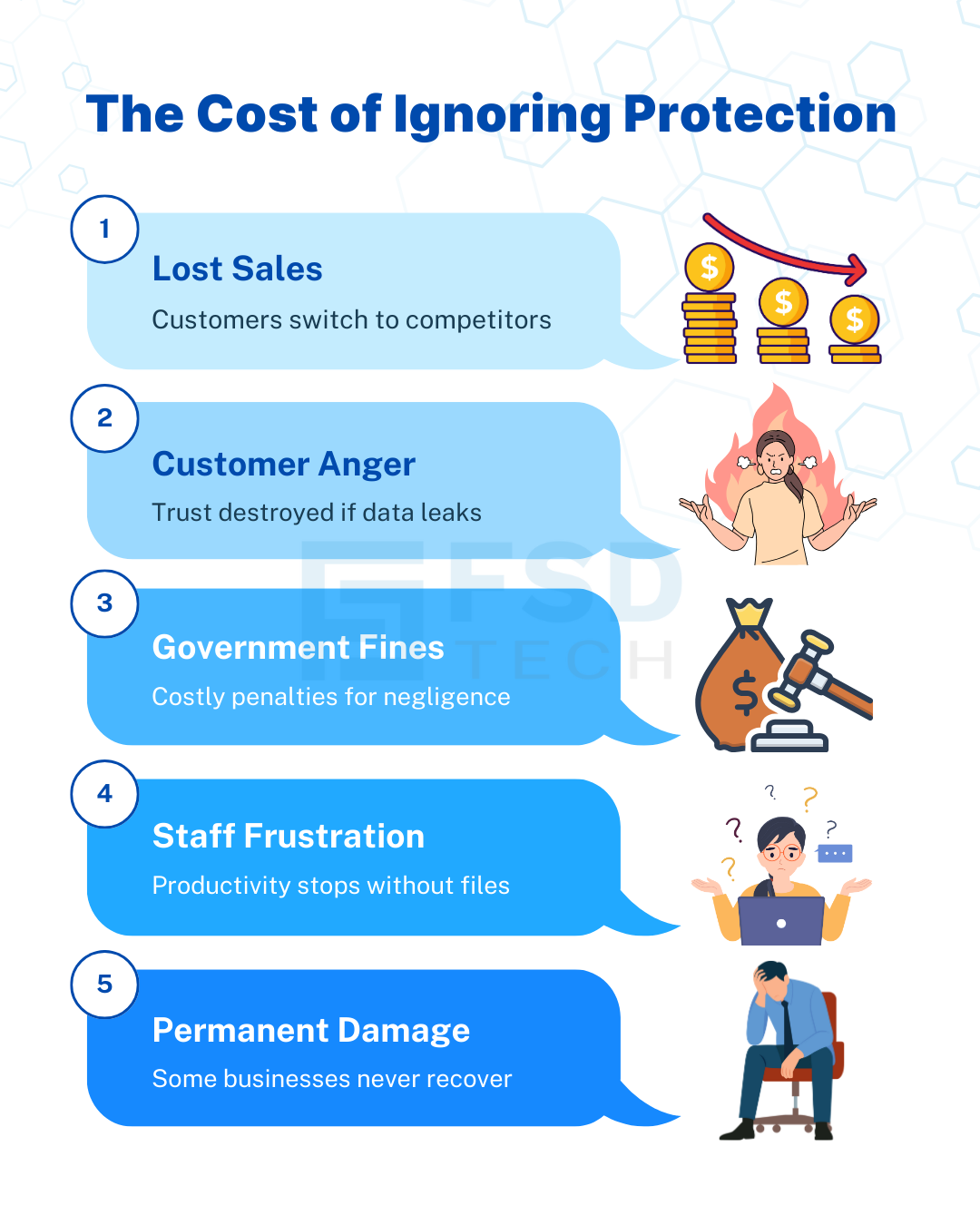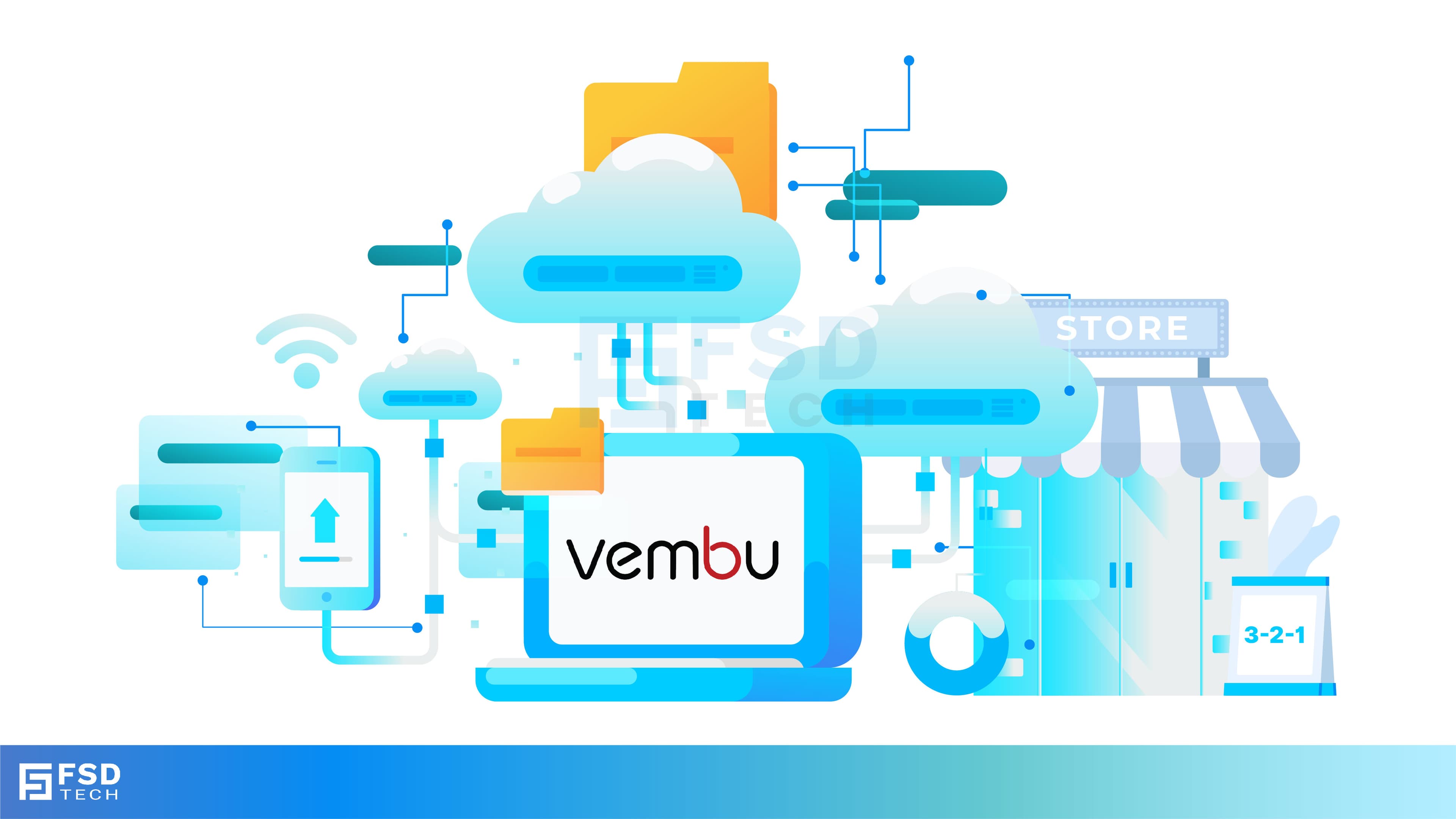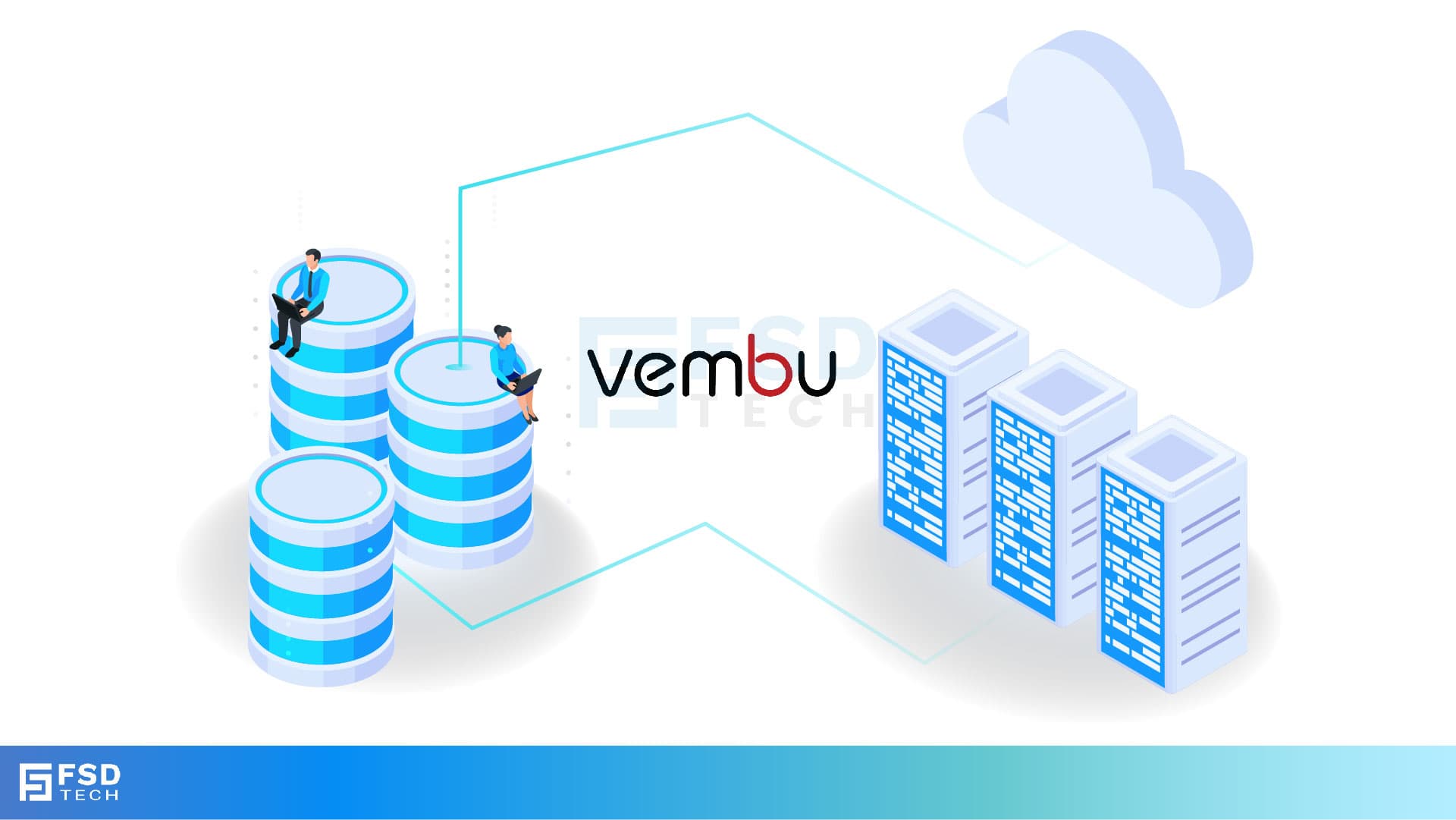.webp&w=3840&q=75)
How ClickUp Enables Outcome-Based Project Management (Not Just Task Tracking)
🕓 February 15, 2026

If you lost all your business data tomorrow — customer details, invoices, orders, inventory lists, payroll files — what would you do?
Could you still serve customers?
Could you still get paid?
Could you still run your operations without guessing?
For many businesses in GCC (Gulf Cooperation Council) countries and Africa, the honest answer is “No.”
That’s why data protection — making sure your business information is safe, backed up, and easy to restore — has become one of the most important topics in 2025.
Worried about your data safety? Claim your FREE 2025 Data Protection Health Check for your business today. Click Here
Lesson: These were two completely different industries and two very different countries — but the result was the same: operations stopped because data wasn’t properly protected.
Think of your business data as the engine of your company. If that engine is damaged or missing, the business stalls — even if everything else is perfect.
In the GCC & Africa, businesses are now more connected, more digital, and more dependent on data than ever before. That means the damage from losing data is faster and deeper than it was just a few years ago.
What’s Different This Year?
1. Ransomware Is More Dangerous Than Ever
Hackers no longer need to be computer geniuses. Many now rent “ransomware as a service” — ready-made attack tools — for a small fee.
They also use AI-powered phishing emails that look real enough to fool even careful employees.
Impact: One click on the wrong email link can shut down your business in minutes.
2. Cloud Storage Isn’t Always Safe
Many businesses have moved files to cloud services like Microsoft 365, Google Drive, or Dropbox.
But here’s the surprise: these services don’t give you full backups by default. If someone deletes a file or a hacker encrypts it, you may only have a short window (like 30 days) to recover it. After that, it’s gone.
Impact: Storing files “in the cloud” doesn’t automatically mean they’re safe forever.
3. New Data Protection Laws Are Coming
Several GCC and African countries are introducing strict privacy and security laws. They are similar to Europe’s GDPR, which fines companies heavily if they lose customer data or don’t protect it properly.
Impact: Losing data could now hurt your wallet twice — once from downtime, and again from government penalties.
4. Working from Home Brings More Risk
Since COVID-19, many employees work part of the week from home. But home networks are often less secure than office ones. Some employees use personal laptops without proper security settings.
Impact: Hackers now have more “doors” they can try to break into.
5. Small Businesses Are Becoming Big Targets
Small businesses are using more online tools — from mobile payment apps to e-commerce platforms. That means more valuable data in digital form. Hackers know SMBs often can’t afford big IT security teams.
Impact: You don’t have to be a big corporation to be attacked — in fact, being small might make you more attractive to cybercriminals.
📌 Hackers evolve every day. Has your backup strategy evolved too? Find out with our free assessment. Start Now
Ignoring data protection can hurt in many ways:
Forward-thinking companies are now:
Vembu BDR Suite is designed to meet the realities of GCC and African businesses:
Final Thought
In 2025, protecting your data isn’t just an “IT department job” — it’s a business survival plan.
Whether you run a small shop in Nairobi or a multinational in Dubai, your risk is real — and your preparation decides whether you recover or close.
Tomorrow’s Topic – We’ll talk about “How Ransomware Is Changing the Backup Game” — and why your backup strategy needs to evolve now.
Don’t wait for a disaster to teach you this lesson. Book a free 2025 data protection health check for your business today. Schedule now

Data protection means keeping your important business information safe from loss, theft, or damage — and making sure you can get it back quickly if something goes wrong.
It’s not just about storing files; it’s about having a plan to recover them when disaster strikes.
Because almost every business now relies on digital information — sales records, customer lists, inventory data, payment systems. If that information is lost or locked, your business can grind to a halt.
With cyberattacks, power failures, and new data protection laws on the rise, the risks are higher than ever.
Yes. GCC and African countries are experiencing a sharp rise in ransomware incidents. Attackers are using AI tools to create realistic phishing emails and identify weak security faster.
They don’t care if your business is big or small — they care if you’re easy to attack.
Not fully. These services keep your files accessible but don’t always provide long-term backups. If a file is deleted or encrypted by ransomware, you might only have a short time (like 30 days) to restore it — after that, it’s gone.
That’s why businesses need separate backup solutions.
Many GCC and African countries are introducing stricter data protection regulations, similar to Europe’s GDPR. These laws require you to protect customer data and can fine you heavily if you lose it due to negligence.
Employees working from home may use unsecured Wi-Fi or personal devices without proper protection. Hackers can use these weaker points as entryways into your business network.
Small businesses are actually prime targets because they often have weaker defenses. A small shop might not lose millions like a big corporation, but losing even a few thousand in one attack can be enough to cause serious damage — or force closure.
It ensures your data is automatically saved in safe locations and can be restored quickly — so downtime is minimized.
A good solution also keeps multiple “versions” of your data so you can go back to a clean copy if ransomware hits.
Vembu provides:
It depends on your business. Some companies back up every few minutes; others once a day. The rule is: the more often, the less data you lose if something goes wrong.
No. If your backups are only in your office, they can be destroyed in the same fire, flood, or theft as your main systems. Best practice is hybrid backup — one copy local for speed, one copy in the cloud for safety.
Not necessarily. Many modern solutions like Vembu are priced to be affordable for small businesses while still offering enterprise-level protection.
Ask yourself:
If you can’t answer “yes” to all, you may not be fully ready.
Start with a data protection health check — review your current setup, test a restore, and identify gaps. This can be done with the help of a solution provider like Vembu.

Nasmal is a Solution Architect & Business Analyst focused on AI, Data, Automation, BCP, and Process Optimization. He helps businesses evolve from reactive to proactive, data-driven, and resilient operations. With hands-on expertise, he simplifies complex tech into clear, easy-to-understand blogs.
Share it with friends!

🕓 November 24, 2025

🕓 September 16, 2025

🕓 September 5, 2025
share your thoughts